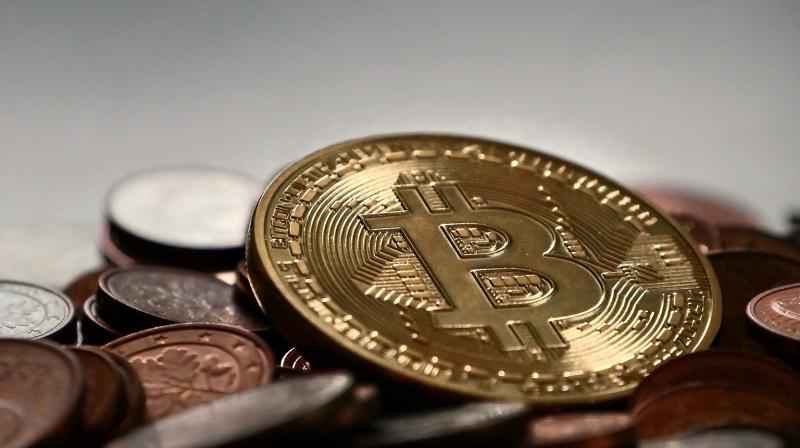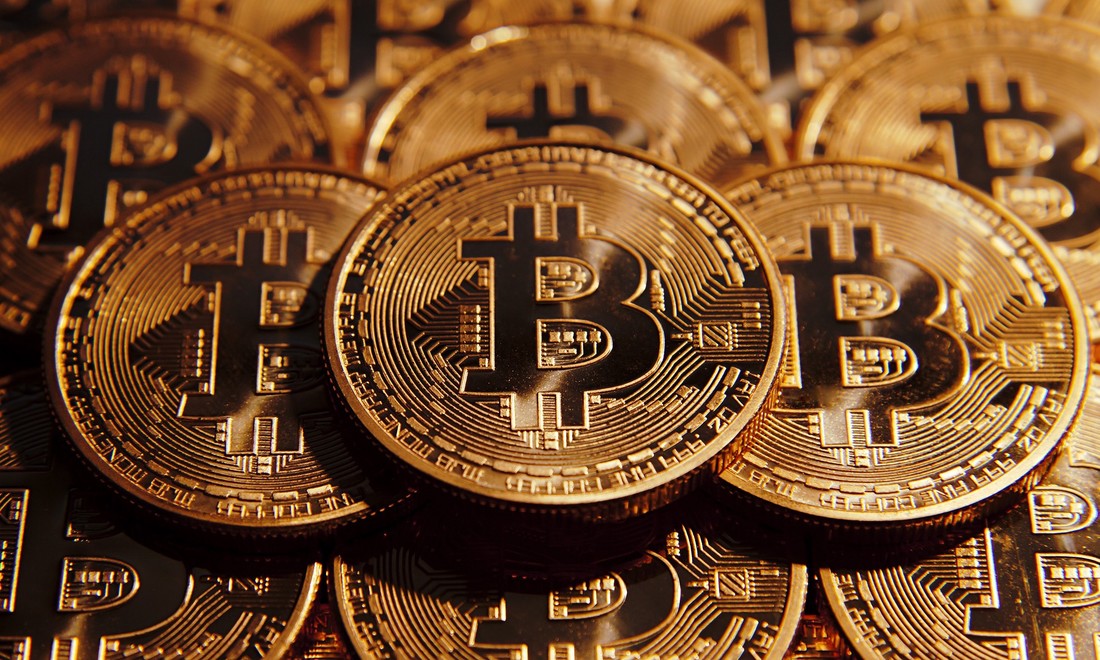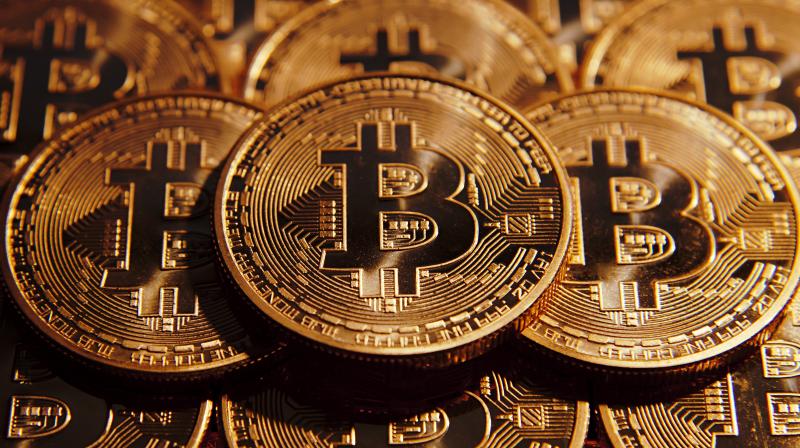|
The company would repay the roughly 260,000 owners of NEM coins in Japanese yen, though it was still working on timing and method.
Tokyo-based cryptocurrency exchange Coincheck Inc said it would return about 46.3 billion yen ($425 million) of the virtual money it lost to hackers two days ago in one of the biggest-ever thefts of digital money.
That amounts to nearly 90 percent of the 58 billion yen worth of NEM coins the company lost in an attack that forced it to suspend withdrawals of all cryptocurrencies except bitcoin. Coincheck said in a statement it would repay the roughly 260,000 owners of NEM coins in Japanese yen, though it was still working on timing and method. The theft underscores security and regulatory concerns about bitcoin and other virtual currencies even as a global boom in them shows little signs of fizzling. Two sources with direct knowledge of the matter said Japan’s Financial Services Agency (FSA) sent a notice to the country’s roughly 30 firms that operate virtual currency exchanges to warn of further possible cyber-attacks, urging them to step up security. The financial watchdog is also considering administrative punishment for Coincheck under the financial settlements law, one of the sources said. Japan started to require cryptocurrency exchange operators to register with the government only in April 2017. Pre-existing operators such as Coincheck have been allowed to continue offering services while awaiting approval. Coincheck’s application, submitted in September, is still pending. Coincheck told that its NEM coins were stored in a “hot wallet” instead of the more secure “cold wallet”, outside the internet. Asked why company President Koichiro Wada cited technical difficulties and a shortage of staff capable of dealing with them. In 2014, Tokyo-based Mt. Gox, which once handled 80 percent of the world’s bitcoin trades, filed for bankruptcy after losing around half a billion dollars worth of bitcoins. More recently, South Korean cryptocurrency exchange Youbit last month shut down and filed for bankruptcy after being hacked twice last year. World leaders meeting in Davos last week issued fresh warnings about the dangers of cryptocurrencies, with US Treasury Secretary Steven Mnuchin relating Washington’s concern about the money being used for illicit activity.
Users blasted the review section over the inclusion of the infamous Coinhive in-browser miner’s JavaScript code in the extension. Google has taken down an extension of its Chrome browser which was reportedly to be secretly mining cryptocurrency using the CPU power of the users.
Archive Poster, a widely used extension which allowed Tumblr users to "reblog, queue, draft, and like posts right from another blog's archive" was said to be hijacking the CPUs of over 1,05,000 users to secretly mine Monero cryptocurrency. Users took it to the review section of the extension to express the disappointment. Users blasted the review section over the inclusion of the infamous Coinhive in-browser miner’s JavaScript code in the extension. Coinhive is the same miner which was used by the torrent website The Pirate Bay to mine cryptocurrency using user’s CPUs. The extension kept mining the cryptocurrency until the browser was open and did not prompt any permission from the users. The process is popularly known as cryptojacking. Besides, there is no option for the user to shut the process but to uninstall the extension or close the website executing the process. After the extension was taken down, another extension ‘[SAFE] Archive Poster’ has emerged. Offered by ‘Archive Poster’, the extension does not provide any screenshot of how it works, which raises serious concerns about the reliability of the extension. The Cboe futures don't involve actual bitcoin. They allow investors to make bets on the future direction of bitcoin. Wall Street got its first taste of bitcoin on Monday, with the price of the first-ever futures contract for the digital currency jumping 20 percent.
It's a step forward for the bitcoin, which has soared this year despite concerns that the surge of investor interest has transformed it from a new-age currency into just the latest speculative bubble. One prominent securities regulator warned that people were now taking out second mortgages on their homes to buy bitcoin. The January contract for bitcoin futures closed at $18,545 on the Cboe Futures Exchange. Trading began Sunday and the price rose as high as $18,850, according to data from the Cboe. The bitcoin futures first day of trading was not entirely smooth. The Cboe's website crashed several times or slowed down, due to a surge of interest. The exchange halted trading twice on the first day to stem volatility. The exchange operator has rules in place to stop trading after price swings of 10 percent. The Cboe said at least 20 trading firms "actively participated" in the first day of trading, without giving specifics. Volume of the bitcoin futures was relatively low, trading less than 4,000 contracts compared with the tens of thousands that typically trade for more popular commodities like oil, gold, or wheat, or the hundreds of thousands of contracts for popular stock-based futures like the S&P 500. The Cboe futures don't involve actual bitcoin. They allow investors to make bets on the future direction of bitcoin. Monday's futures price indicates investors expect bitcoin to keep rising in the coming weeks, although at a slower pace than seen recently. The futures price was about 8 percent higher than the price of $17,100 quoted for bitcoin on the large private exchange CoinBase late Monday afternoon. But with the surge of interest has come concerns about the bitcoin market being in a bubble. In an interview on business network CNBC, North American Securities Administrators Association President Joseph Borg said he observed some people taking out mortgages on their house to buy bitcoin. While bitcoin has a vocal group of true believers, it also attracts its fair share of detractors. JPMorgan Chase CEO Jamie Dimon has called bitcoin "a fraud." Thomas Peterffy, chairman of the broker-dealer Interactive Brokers Group, expressed deep concerns about the trading of bitcoin futures last month, saying "there is no fundamental basis for valuation of Bitcoin and other crypto-currencies, and they may assume any price from one day to the next." But there is some hopes that bringing bitcoin to a public exchange like the Cboe or the Chicago Mercantile Exchange will bring some regulation or legitimacy to the world of crypto-currencies. Here are some facts that you might not know about the largest and best-known cryptocurrency. Bitcoin rocketed to another record high close of $16,000 on the Luxembourg-based Bitstamp exchange on Thursday after gaining more than $4,000 in just 48 hours, stoking concerns that a rapidly swelling bubble could be set to burst. There were huge disparities between prices across different exchanges. On GDAX, one of the biggest, the price reached $19,500.
Here are some facts that you might not know about the largest and best-known cryptocurrency. HOW MANY ARE THERE? Bitcoin’s supply is limited to 21 million - a number that is expected to be reached by the year 2140. So far, around 16.7 million bitcoins have been released into the system, with 12.5 new ones released roughly every 10 minutes via a process called “mining”, in which a global network of computers competes to solve complex algorithms in reward for the new bitcoins. ENERGY DRAIN These mining computers require a vast amount of energy to run. As the price increases, more miners enter the market, driving up the energy consumption further. A recent estimate by tech news site Motherboard put the energy cost of a single bitcoin transaction at 215 kilowatt-hours, assuming that there are around 300,000 bitcoin transactions per day. That’s almost enough energy as the average American household consumes in a whole week. BITS OF BITCOIN If you want to buy bitcoin, you do not need to buy a whole one. Bitcoin’s smallest unit is a Satoshi, named after the elusive creator of the cryptocurrency, Satoshi Nakamoto. One Satoshi is one hundred-millionth of a bitcoin, making it worth around $0.0002 at current exchange rates. BITCOIN BILLIONAIRES Bitcoin has performed better than every central bank-issued currency in every year since 2011 except for 2014, when it performed worse than any traditional currency. So far in 2017, it is up more than 1,400 percent. If you had bought $1,000 of bitcoin at the start of 2013 and had never sold any of it, you would now be sitting on around $120 million. Many people consider bitcoin to be more of a speculative instrument than a currency, because of its volatility, high transaction fees, and the fact that relatively few merchants accept it. EXCHANGE HEISTS More than 9,80,000 bitcoins have been stolen from exchanges, either by hackers or insiders. That’s a total of more than $15 billion at current exchange rates. Few have been recovered. MYSTERY CREATOR Despite many attempts to find the creator of bitcoin, and a number of claims, we still do not know who Satoshi Nakamoto is, or was. Australian computer scientist and entrepreneur Craig Wright convinced some prominent members of the bitcoin community that he was Nakamoto in May 2016, but he then refused to provide the evidence that most of the community said was necessary. It is not clear whether Satoshi Nakamoto, assumed to be a pseudonym, was a name used by a group of developers or by one individual. Nor is it clear that Nakamoto is still alive - the late computer scientist Hal Finney’s name is sometimes put forward. Developer Nick Szabo has denied claims that he is Nakamoto, as has tech entrepreneur Elon Musk more recently. INFLATED CHINESE TRADING Until earlier this year, it was thought that Chinese exchanges accounted for around 90 percent of trading volume. But it has become clear that some exchanges inflated their volumes through so-called wash trades, repeatedly trading nominal amounts of bitcoin back and forth between accounts. Since the Chinese authorities imposed transaction fees, Chinese trading volumes have fallen sharply, and now represent less than 20 percent, according to data from website Bitcoinity. “MARKET CAP” The total value of all bitcoins released into the system so far has now reached as high as $283 billion. That makes its total value - sometimes dubbed its “market cap” - greater than that of Visa, and bigger than the market cap of BlackRock and Citigroup combined. CRYPTO-RIVALS Bitcoin is far from the only cryptocurrency. There are now well over 1,000 rivals, according to trade website Coinmarketcap. “SHORTING” It is already possible to short bitcoin on a number of retail platforms and exchanges, via contracts for difference (CFDs), leveraged-up margin trading or by borrowing bitcoin from exchanges without leverage. But a number of big financial institutions - including CME Group, CBOE and Nasdaq - have recently announced that they will offer bitcoin futures, which will open up the possibility of shorting the cryptocurrency to the mainstream professional investment universe. LOST BITCOINS Many fewer than the 16.7 bitcoins that have been mined are actually in circulation and accessible, because of forgotten passwords, accidental losses, hoarding, owners forgetting about coins or even dying. It is impossible to know for sure how many bitcoins have been permanently lost, because those that have are still in the system, in dormant addresses. But according to a December 2013 research paper by the University of San Diego and George Mason University, 64 percent of the 12 million bitcoins that had by then been mined had never been spent. Bitcoin developer Sergio Lerner estimates that almost 1 million unspent bitcoins belong to the cryptocurrency’s mysterious creator. RICH LIST There are 5,638,155 bitcoins in the 1,000 biggest wallets - more than a third of all bitcoins in circulation. That makes the 1,000 biggest wallet-holders worth a collective $87 billion, at current rates. HIGH FEES The average fee paid to process bitcoin transactions has soared over the past year, outpacing even the staggering price increase of the cryptocurrency itself. Each bitcoin transaction now costs around $7.30 to process, up from around 30 cents at the start of the year, according to trade website BitInfoCharts. FORKING OFF If you owned bitcoin prior to Aug. 1, 2017, you also own Bitcoin Cash - a clone of the original. That is because on that date bitcoin underwent a so-called “fork”, in which the underlying software code was split into two. One unit of Bitcoin Cash is now worth more than $1,300. That adds roughly another 135 percent to the returns from a bitcoin investment at the start of the year. |
Categories
All
|




 RSS Feed
RSS Feed
